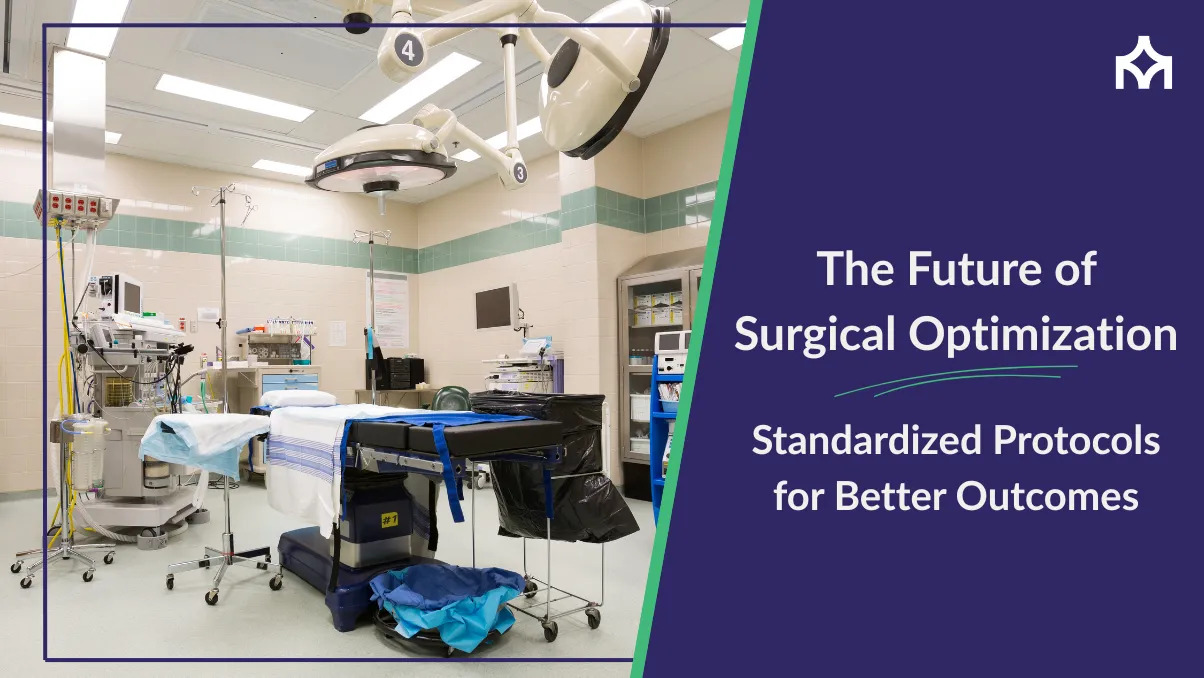The Future of Surgical Optimization: Standardized Protocols for Better Outcomes
Standardised Surgical Protocols: The Operating System for Safer, Faster, Lower-Cost Care
Surgical optimisation has moved from a clinical aspiration to an operational necessity. As volumes rise, expectations grow, and value-based models expand, health systems must deliver safer, more reliable, and more affordable surgery. Standardised surgical protocols—evidence-based, specialty-specific pathways—reduce variation, streamline workflows, and improve outcomes. Modality Global Advisors (MGA) helps organisations put these protocols into practice by building smarter, accountable operating rooms.
Why Optimisation Is the Future of Surgical Care
Even with advanced technology, unwarranted variation remains a major driver of avoidable harm and cost. When supported by governance and digital integration, standardisation reduces errors, elevates team performance, and shortens recovery.
What Standardised Protocols Deliver
- Improved outcomes: lower complications and infections; faster recovery; fewer readmissions.
- Efficiency & cost: fewer delays/cancellations; shorter operative times; better resource use and supply standardisation.
- Data-driven decisions: real-time compliance tracking; gap identification; continuous refinement via analytics.
- Team satisfaction: clearer roles; structured onboarding; a shared playbook that improves communication.
Common Barriers to Scaling Protocols
- Change resistance among surgeons accustomed to individual techniques.
- Weak governance to enforce and sustain adherence.
- Siloed data systems that limit real-time visibility and feedback.
- Inconsistent training across anaesthesia, nursing, and OR teams.
How Modality Global Advisors Makes the Difference
-
Protocol development & customisation
Co-design specialty protocols with clinical leaders—anchored in best evidence and adapted for site context. -
Governance & accountability
Clinical champions, compliance committees, audits, and variance review to sustain adoption. -
EHR & tech integration
Embed order sets, checklists, and hard stops into EHR/OR systems; surface real-time readiness and adherence. -
Training & change management
Simulation workshops, role-based coaching, and standard onboarding to align all peri-op teams. -
Performance monitoring & improvement
Dashboards for LOS, complications, on-time starts, turnover, and supply variance with feedback loops.
Real-World Results from Standardised Pathways
| Metric | Typical Impact | Drivers |
|---|---|---|
| Complication rate | ↓ up to 40% | ERAS adherence; antibiotic/VTE timing; checklists |
| Length of stay | ↓ 2–2.5 days | Standard discharge criteria; early mobilisation; analgesia protocols |
| OR cost per case | ↓ 15–20% | Supply standardisation; turnover efficiency; on-time starts |
| Patient/staff satisfaction | ↑ measurable gains | Clear roles; fewer delays; predictable pathways |
A Smarter, Safer Surgical Future Starts Now
Standardised protocols are the foundation of future-ready surgery. Hospitals that adopt and adapt today will lead tomorrow—delivering consistent, efficient, patient-centred care. MGA is at the forefront—aligning governance, innovation, and data to redesign perioperative performance.
Ready to optimise your pathways? Reduce variability, streamline workflows, and align teams under a unified, evidence-based strategy with Modality Global Advisors. hello@modalityglobal.com.






